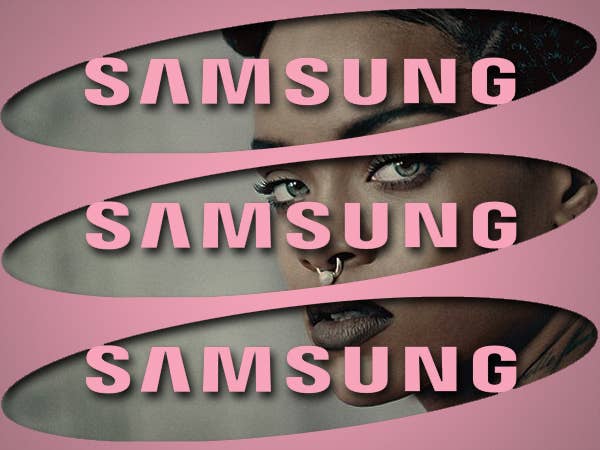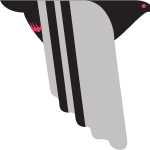
1.

Earlier this year, Pigeons & Planes and New Torch Entertainment began our new series, Inside Track. We have spoken to various industry insiders to analyze an artist’s career in different areas of the industry, including sync licensing, streaming and the value of touring.
Now we’re delving into brand partnerships. Joining forces with a large brand to launch and sustain an album campaign is certainly not a foreign idea for global superstars (most recently, Rihanna’s massive Samsung deal for her upcoming album and tour). The lucky few (Dr. Dre, Jay Z) have even been able to fold their brand partnerships into massively successful businesses. But how are younger acts partnering with brands to jump up to the next level?
We spoke with Seth Kallen, founder of This Fiction. Seth manages the indie rock band X Ambassadors, and the band partnered with Jeep to launch their single “Renegades” in March 2015.
We also discussed the topic with Mo, Brandon and Joe of No Wyld, the New Zealand rising indie-rock outfit based in New York. Even at a relatively early stage, the band has had found success with syncs and brand partnerships in the run-up to their debut album with Columbia Records. Hear it straight from the artist’s perspective below.
What brands have you worked with, and what did the partnerships entail exactly?
No Wyld: We’ve gotten to work with some cool brands lately—Bose, Winter Olympics, EA Games/FIFA, Apple, and Nike. Most partnerships have varied in the type of interaction. Most of the time they just license our music. However Nike has been a uniquely different relationship, built more on introducing us to their community of supporters and other artists and making sure that we have all the Nike gear we want.
How do these partnerships come about?
Seth Kallen: For X Ambassadors, they were working on a song with Alex Da Kid called “Renegades” when the team at Interscope came to us with the opportunity to place the song in a Jeep commercial. As we were discussing the sync usage of the song, the conversation led to a larger partnership, featuring the band themselves in the ad and a larger collaboration between the brand and the band.
NW: It varies from personal relationships, publishing, record label and word of mouth.
What and who do these partnerships entail exactly?
SK: The band, Alex Da Kid, Interscope’s Daniel Sena and Steve Berman, myself, and Jeep. Once Kim House at Jeep showed the commercial featuring the band in it to the rest of her team at the company, the plan was set. We knew right away that Jeep would play a large role in launching the single.
Why do you think you were chosen over other artists? What are the brands really looking for?
NW: First off, they like our music—it has to fit the style and vibe of the brand or the specific way they are trying to market themselves. But brands tend to look for more than just dope music—a lot of what draws people in is our aesthetic and stylistic qualities. How we dress, where and who we hang out with, our social media presence, and fan interaction all have an effect. And we like to think we’re pretty personable, so once we’re in contact with these brands that definitely helps to maintain the relationship.
What kind of impact do these partnerships have on sales, streams, tour tickets, etc?
SK: Leading up to the Jeep partnership, the band had built a following and a base. We had a platform to launch from. I think that’s a large reason why this campaign has been so successful—the brand was aligning themselves with a band with real dedicated fans. When the commercial started airing though, a spark turned into a flame. Streams picked up globally, tour dates started selling out faster than ever before, and sales and social media numbers picked up speed. The commercial has given the band an insane amount of visibility, but the song itself is connecting with people worldwide in a way we could have never planned for.
NW: Honestly, it’s had a pretty significant impact on streams and sales. We’ve only just started doing shows again now that we’ve finished the debut album, but audiences are growing.
What kind of impact do these partnerships have on the brand? Is there ever any negative response due to the band pairing with a corporate brand?
SK: It’s been nothing but positive on our end. Honestly, music fans are used to seeing bands licensing music to big brands. In many ways, the fans become proud of the band for having such a big platform and impact. The commercial itself was also done in a way where the band were really themselves on camera. Nothing was forced. We had a great time shooting it, where the agency and the team at Jeep basically said “have some fun, drive around Oregon, be yourselves.”
NW: Generally brands have had a very positive response. It reflects well on them to be shown to support up and coming acts. We haven’t received any negative response from any brand campaigns.
Does the execution of these partnerships cause you to change timelines and release plans at all?
SK: Absolutely. The band had been working on the album for a long time, but we always wanted to make sure when we took the next step from EPs to an album, that we had a “moment.” Everyone always hopes that that moment is a huge sync for their artist, and we are so incredibly luckily that that worked out. When we landed the campaign, our timeline shifted so we could react globally to where the commercial was running.
NW: We have had to change release schedules a few times due to songs being used in advertising campaigns. Once a brand hears a song of yours they like, it can be pretty hard to say no, even when the song may be unreleased. With apps like Shazam people can immediately find us so it’s best to have it out there for people to find.
Do you feel that these campaigns and their success will directly lead to more brand partnerships?
SK: Funnily for us, Jeep wasn’t our first major campaign. Last summer Beats By Dre used “Jungle” in their worldwide World Cup advertisement. That too was an incredible experience, which took the band and I to some amazing places throughout the tournament, with the song becoming a major hit in the UK, Germany, and more. These brands are empowering artists and enabling us to get the music in front of people. This will hopefully be one of many positive partnerships we take part in throughout the band’s career.
How were the Jeep and Dre opportunities for X Ambassadors similar, and different, in terms of involvement and impact afterwards?
SK: Both syncs had a huge global impact. The interesting thing about the Beats By Dre commercial though, is since it was played around and inspired by the World Cup, the song got a massive reaction in countries where soccer is more culturally relevant. We were seeing spikes in countries like Kyrgyzstan, places we never could’ve dreamed people would be listening to X Ambassadors.
Have these partnerships with brands changed the way you think about releasing new music?
SK: Absolutely. It’s such a challenge for even the best music to be heard, so when launching an artist, a new song, or an album, we are constantly trying to find the right brand partners early in the process leading into putting out new music.

